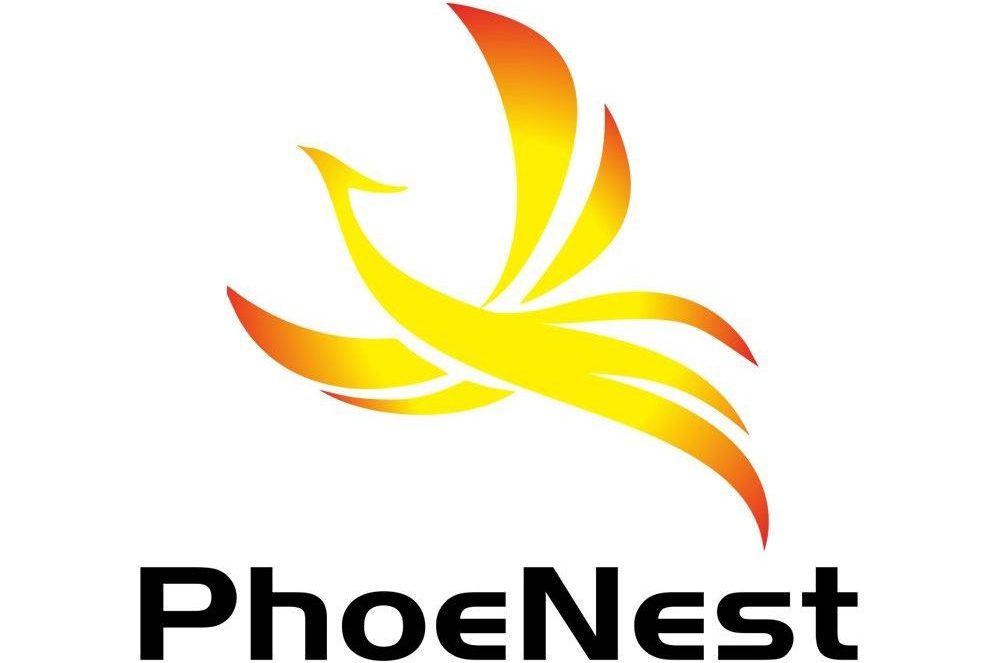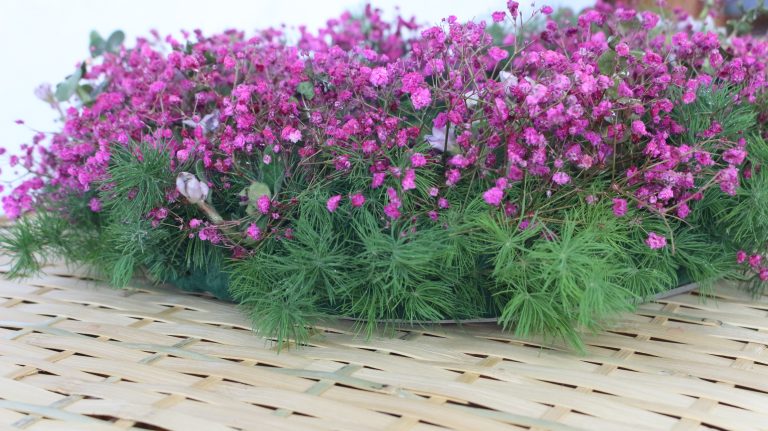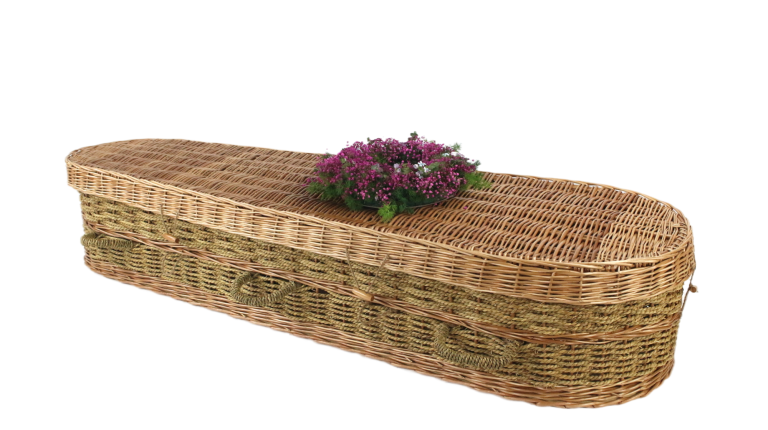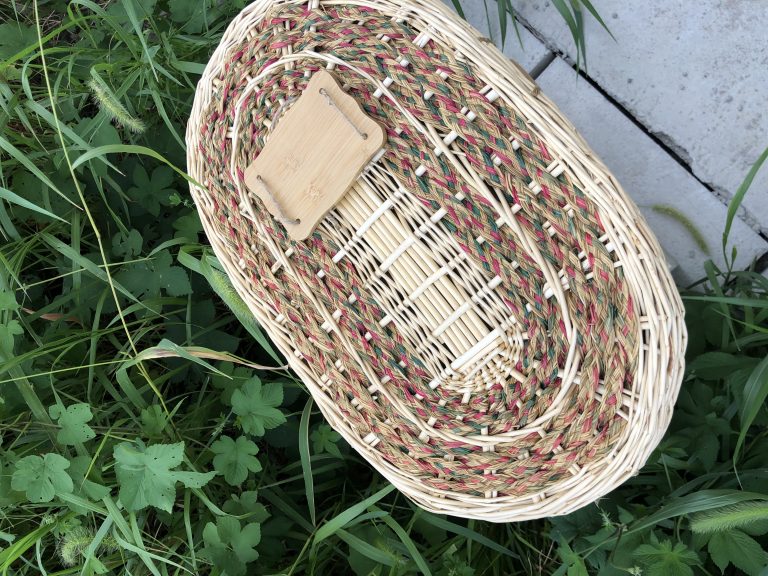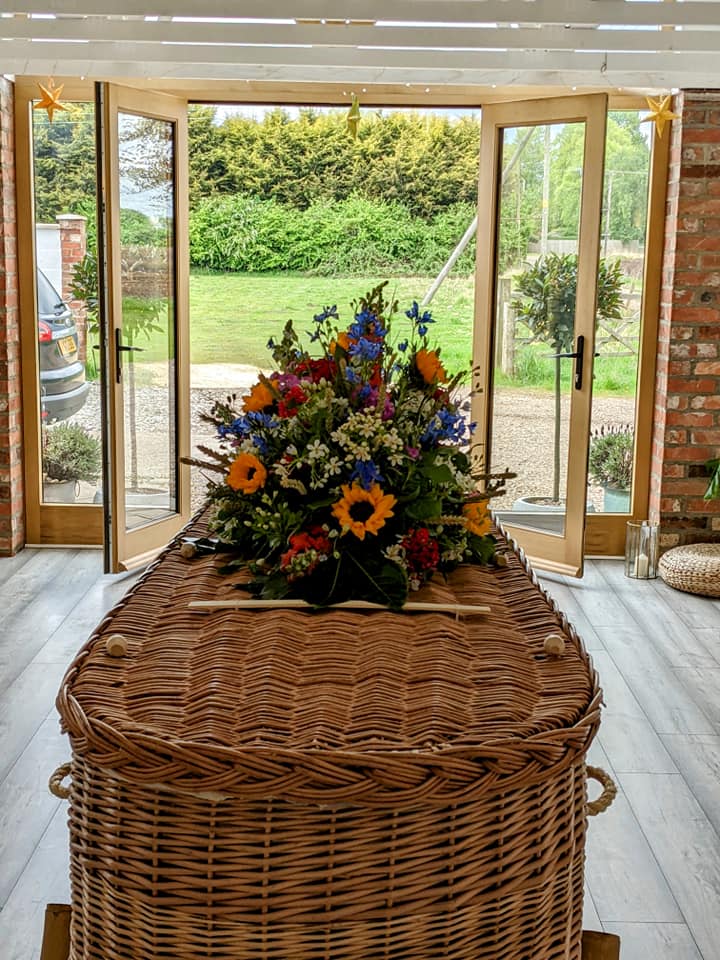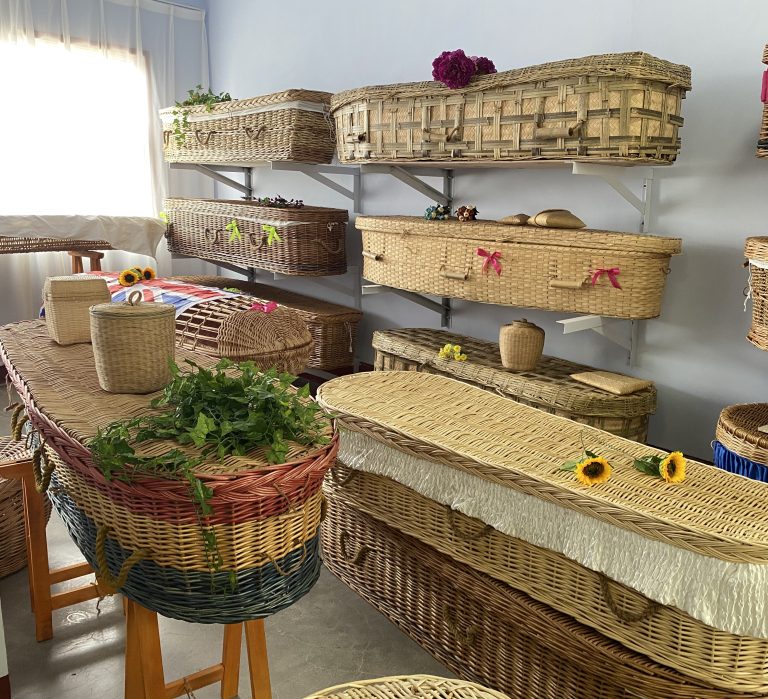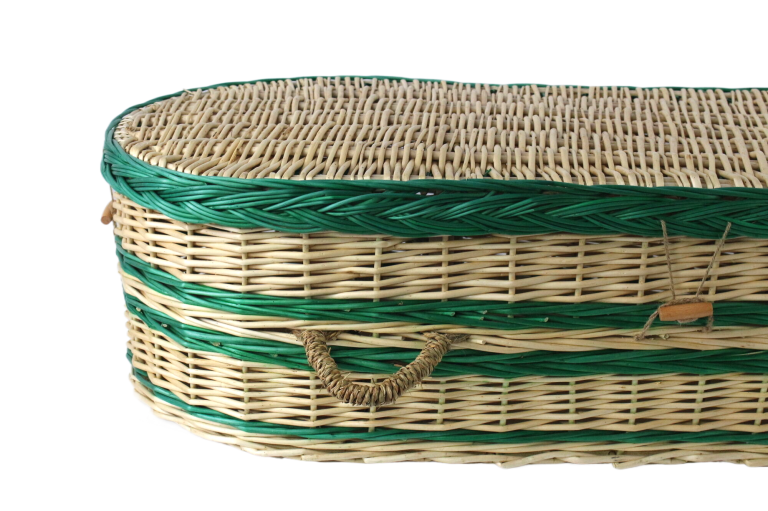In recent years, wicker coffins have surged in popularity as a sustainable alternative to traditional wooden or metal caskets. However, their premium pricing—often ranging from 900 to over 1,000—raises questions about what drives such costs. The answer lies in a combination of artisanal craftsmanship, premium materials, and the dominance of Chinese manufacturers like those in Linyi Linshu, a small town in Shandong Province that has become the global epicenter of wicker coffin production.
1. The Art of Handweaving: Centuries-Old Craftsmanship
wicker coffins are meticulously handwoven using materials like willow , seagrass, and bamboo. This labor-intensive process requires exceptional skill, passed down through generations. Factories in Linshu, known as the “willow Capital of China,” leverage over 100 years of weaving heritage to create intricate designs that blend traditional aesthetics with modern functionality . Unlike mass-produced alternatives, each coffin is a bespoke piece, with artisans dedicating hours to ensure structural integrity and aesthetic perfection. This level of craftsmanship justifies a higher price point, especially for custom designs or limited-edition models.
2. Premium Materials: Sustainability Comes at a Cost
The raw materials used in wicker coffins are sourced sustainably from regions like Linshu, where willow plantations thrive due to ideal growing conditions. Unlike synthetic alternatives, natural fibers like seagrass and bamboo degrade eco-friendly, aligning with global trends toward biodegradable burial solutions . However, these materials are more expensive to harvest and transport. For instance, high-quality willow strips from Linshu cost significantly more than generic bamboo, reflecting their durability and aesthetic appeal.
3. Global Demand vs. Limited Supply
The rise of eco-conscious consumerism has driven demand for wicker coffins in Europe, North America, and Japan. Linshu factories, such as Shandong Phoenixnest Co., Ltd., export over 10,000 units annually, catering to markets where cremation and green burials are increasingly normalized . Despite scaling production, the niche market’s limited supply chain—dependent on skilled labor and regional raw materials—creates scarcity, allowing manufacturers to command premium prices.
4. Customization and Branding Premiums
Many buyers opt for custom features, such as engraved names, personalized linings, or hybrid designs combining wicker with metal accents. Factories like Linshu Lantian Arts & Crafts Co., Ltd(Now is Roconly funeral supplies). offer bespoke services, charging a 20–30% premium for these modifications . Additionally, brands emphasizing certifications (e.g., BV or ISO quality standards) or eco-certifications (e.g., FSC) further elevate prices, appealing to environmentally aware clients.
5. Logistics and Market Penetration Costs
Exporting from China involves navigating complex logistics, including shipping, tariffs, and compliance with international safety regulations. For example, a standard wicker coffin from Linshu might incur a 15–20% tariff when entering the EU, raising retail prices .
The Future of wicker coffins: Balancing Tradition and Innovation
As demand grows, manufacturers in Linshu are experimenting with hybrid materials (e.g., seagrass-willow composites) and automated weaving techniques to reduce costs without sacrificing quality. However, the human touch remains irreplaceable—a fact underscored by the town’s enduring reputation as the world’s premier producer of eco-friendly burial solutions.
In conclusion, the high cost of wicker coffins is a testament to their craftsmanship, sustainability, and the intricate global supply chains that deliver them to consumers. For those seeking a meaningful farewell, the price reflects not just a product, but a legacy.
Phoenix Nest ( Shandong ) Crafts Co.,Ltd.
Whatsapp: +86-18265103836 (Whatsapp & Wechat & Tel)
Email: jason@phoenxinestcoffin.cn
#willow coffin#greencoffins#bamboocaskets#urns#naturalcoffins#chinafactory#scattertube#naturalburial#FuneralSupplies#cross#flowerbands#shrouds #carrierfuneral We are a factory supporting eco friendly green funeral(natural willow coffins\bamboo caskets and so on) .. for detail please contact us www.phoenixnestcoffins.com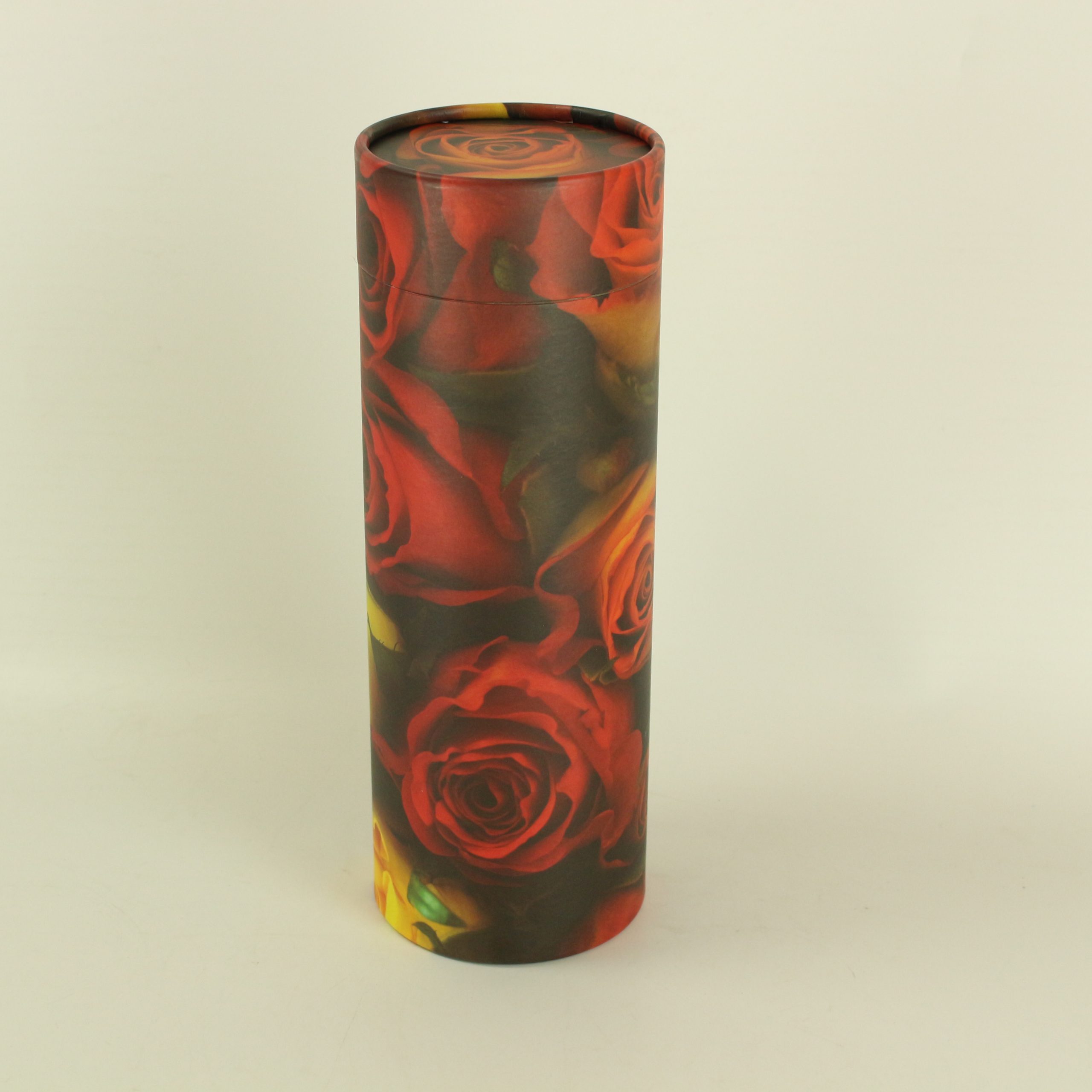 Linshu Linyi’s coffin factories leverage China’s dominance in willow production (supplying 80% of global willow ) to create high-performance, low-cost solutions#phoenixnestcoffins #willow coffin #bamboocasket #ecocaskets#crematorium#funeralsupply@everyone@followers
Linshu Linyi’s coffin factories leverage China’s dominance in willow production (supplying 80% of global willow ) to create high-performance, low-cost solutions#phoenixnestcoffins #willow coffin #bamboocasket #ecocaskets#crematorium#funeralsupply@everyone@followers
